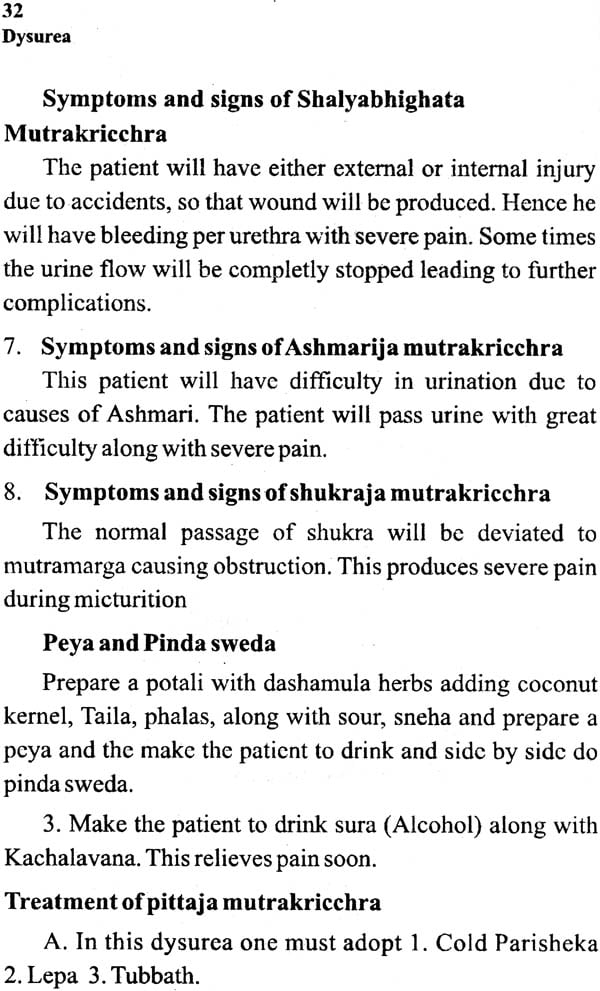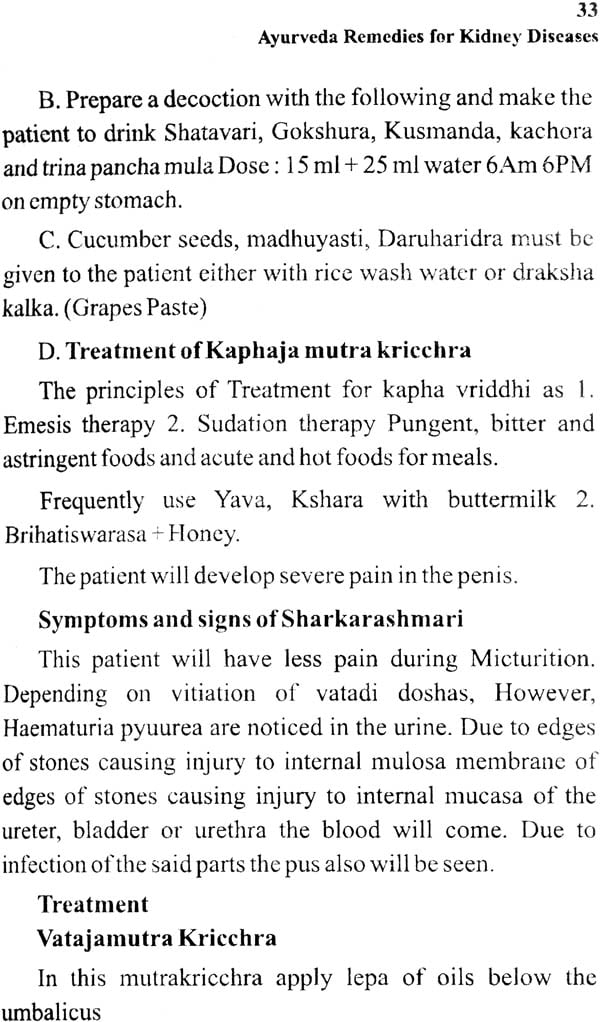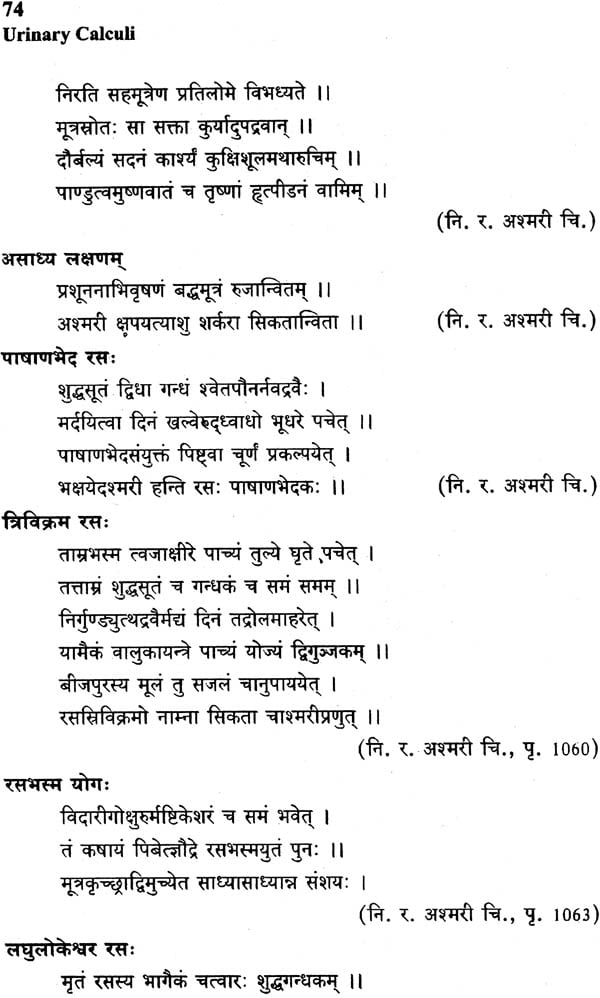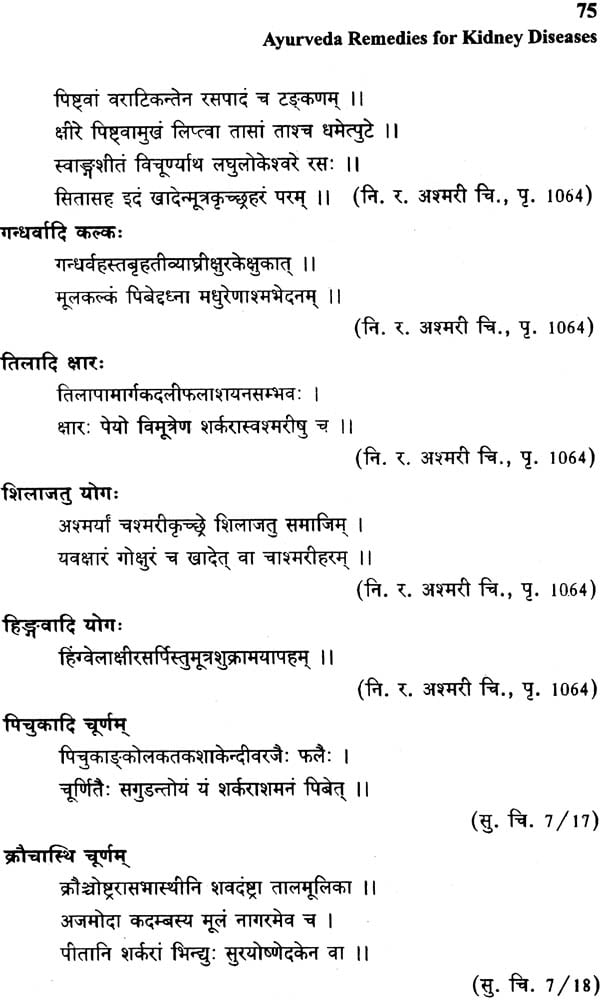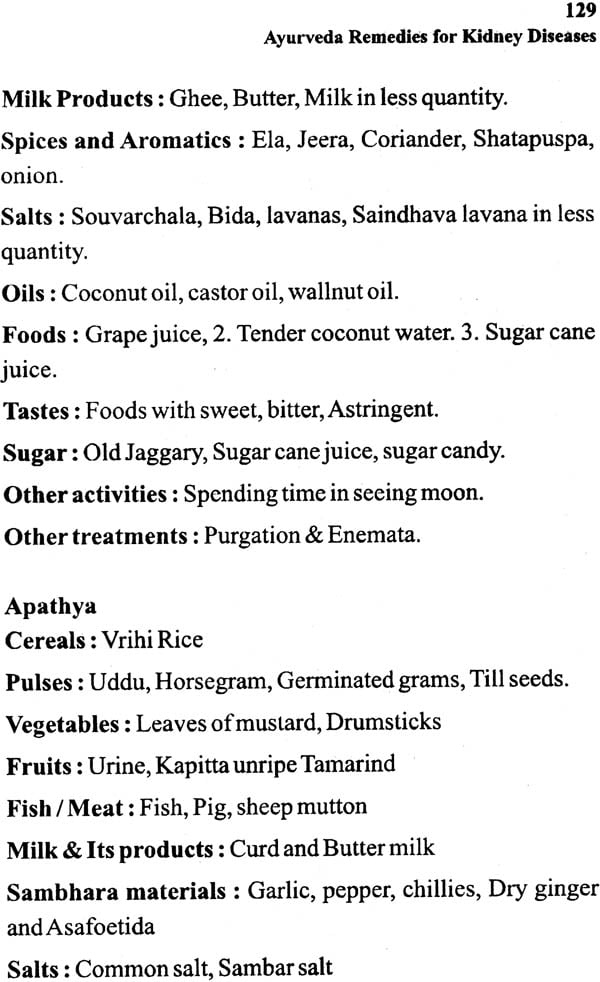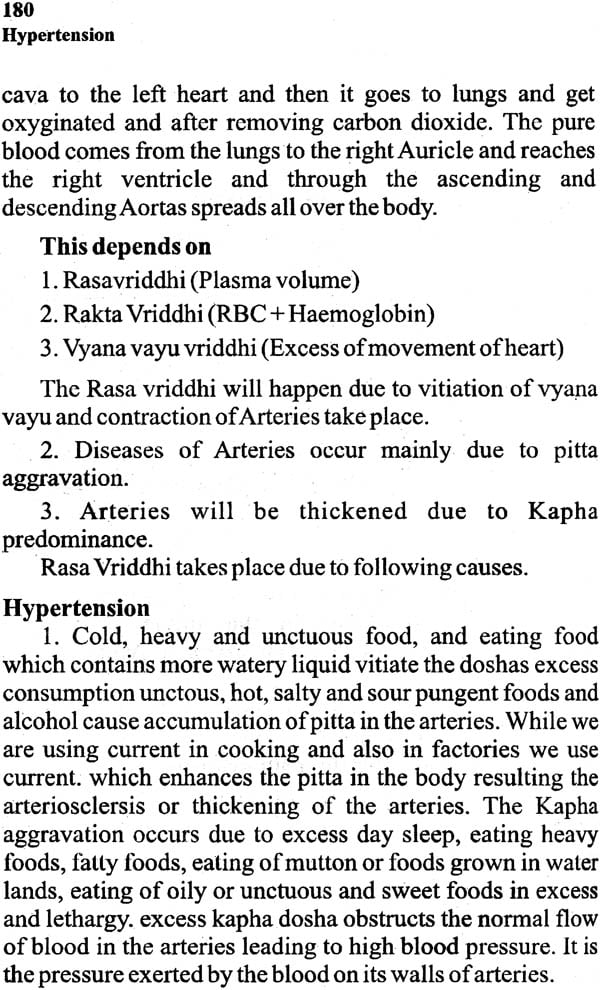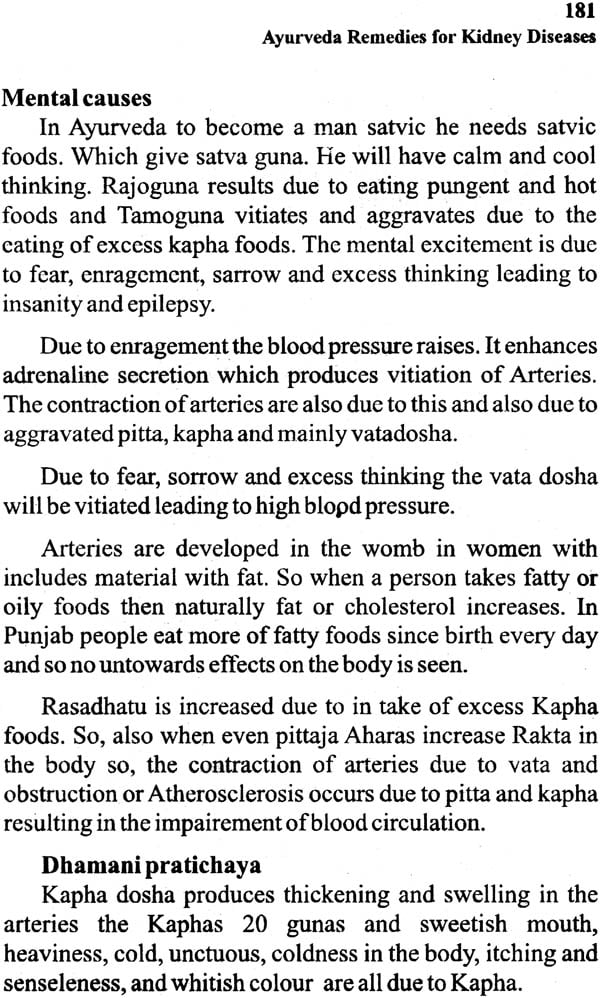
Ayurveda Remedies for Kidney Diseases
Book Specification
| Item Code: | NAK772 |
| Author: | Dr. T.L. Devaraj |
| Publisher: | CHAUKHAMBHA ORIENTALIA, Delhi |
| Language: | English & Sanskrit |
| Edition: | 2015 |
| ISBN: | 9788189469887 |
| Pages: | 232 |
| Cover: | Hardcover |
| Other Details | 9.0 inch X 5.5 inch |
| Weight | 350 gm |
Book Description
Prof. Dr. T. L. Devaraj was awarded Vaidya Shree Rama Narayana Sharma National Award, 2007 for his outstanding contributions in the field of Ayurveda education, treatment, for his teaching and administrative capabilities presented by Smt. Pratibha Devi Singh Patil, president of India on Monday, 20th May, 2008 at Rashtrapathi Bhawan,
India like any otherdeve1oping countries is facing a silent epidemic of renal disorders. Few renal disorders are manageable through home remedies, while-few becoming threat to global health. Ayurvedic comprehensively discussed these diseases under Mutravaha Srotas. According to Ayurvedic principles of management; tissue damage can be prevented and repaired by Rasayana drugs as they have the capability to improve qualities of tissue and hence increase resistance. On the other hand, blockage in the Srotas can be removed by Lekhana Drugs. Awareness regarding such descriptions and treatment methodology available in Ayurveda.
The attempt made by Dr. T.L. Devaraj in compiling and bringing-up Ayurveda Remedies for Kidney help the students, teachers and all other scholars who are interested in studying the intricacies involved in the patho-physiology of renal diseases.
The information presented herewith is also expected to be useful to both Under-Graduate and Post-Graduate scholars of different specialities. It also serves as a handy index of the references to the formulations that are useful in renal diseases.
I take this opportunity to congratulate Dr. T.L. Devaraj for his great effort. His vast experience, more than 40 publications, research background and a good academic record reflected in this current exercise. The present work is example of his ardent love for Ayurveda. I expect many such works in future from the pen of Dr. TL. Dcvaraj.
Ayurveda is as old as Vedas. Even at the time of creation of universe the Brahma, the creator of the universe has remembered the Ayurveda and taught to Brahma to Daksha, Daksha to Aswini Devatas to Indira to Atreyadi Maharshi to Agnivesha & Maharshies. The Ayurveda granthas consists of details of principles how a man must live. His daily regimen, seasonal regimen, Brahmacharya, and Sadacharas and Sadvrittas. These are the basic principles necessary for a man to live happily and healthy in this world and to attain Moksha or salvation after death. There are the some prophalactic measures like what to eat, when to eat, when to sleep, when to do exercise, when to do Abhyanga and also several rules and regimens are formed for this purpose.
World or universe is made up of Panch a Mahabhootas or pentad of Maha Bhootas viz prithvi (earth), AP (water) Tejas (Fire). Vayu (Air) and Akasa (ether)
The entire body is made up of Panch a Mahabhootas in minute form. Universe is macrocosm and the body is made of microcosm. In the body each and every tissues, and cells and atoms are made up of these micro elements in different proportions. The Vayudhatu or dosha depending on its activity is made up of Vayu and Akasa and so also the pittadhatu or dosha is made up of Tejas, Vayu and so also the Apdhatu or dosha is made up of Prithvi and AP and these tridoshas, Vata Pitta and Kapha when vitiated will produce the diseases, otherwise, the vata is like air in the universe which helps in the movement and activities of the organs / tissues / cells and the digestion of food, movements of food in the alimentary tract, including the delivery of foetus, passage of faeces and urine, and also the brain activities. It may be compared to CNS, Sympathetic and parasympathetic.
The pitta is nothing but digestive, pancreatic, biliary and secretions of all glands in the body. When it is normal it aids in the digestion of food and its absorption and assimilation and growth and metabolism.
When it derails in its functions, indigestion leads to many disorders or diseases, starting from Ama to Amavata (Rheumatoid arthritis), colitis, diarrhoea, dysentry and so on.
The normal Kapha or watery portion in the body is about 80-90% in the dhatus or tissue I cells in the body normally it is a growth factor. It aids in digestion in the stomach and also it helps in movements of joints etc and all the tissues, cells and atoms of the body are nourished by these Kaphas.
The diseases of urinary system or Mutra vaha srotas are mainly due to derangement of Kapha dosha. It is aggravated due to foods/diets grown in watery areas or Anup desha. There may be foods or animals reared in these marshi or watery areas. Many more diseases occur due to its provocation, but here in this book urinary tract disease are dealt with. It is necessary to understand the factors that are lying behind their kidney diseases.
It is very necessary to understand basic pathology of urinary tract diseases for the complete cure.
In Kidney diseass including Acute or chronic failure, even though the Kidney, according to modern medicine it is failed physiologically and pathologically as it cannot secrete urine and eject it through the ureters and lastly through the urethra. It is a commonly accepted fact according to the present day Modern scientists all over the world.
But Ayurveda did not agree to this principle, to quote an example. A public prosecutor who had chronic Renal failure treated by eminent Nephrologists of Karnataka after admitting the patient in KR Hospital Mysore, Manipal Hospital Mangalore, and christian Mission hospital mysore for months, after Haemodialysis and peritoneal dialysis they could not get an ounce of urine after 10-20 bottles of 500 ml of infusion of fluids into his body. But when the case was put on Ayurveda Kashaya with a vati, to the astonishment of parents of the patient at least 5litres of urine came out.
The patient was admitted in the hospital with strict instructions to his parents that he may not survive as peritoneal dialysis was done Treatment for 10 days was done and he was passing 2-4litres of urine perday and he was on liquid diet. On eleventh day as the patient was non vegetarian, without the knowledge of the Doctor he took non vegetarian food and after 2 hours of it he had vomited and died.
I have quoted here a patient to show the world that the Kidney failure cases can be treated as per Ayurveda as it does not believe in the modern therapy. As soon as the medicines given to the patient to stimulate digestive fire the Kidney automatically starts functioning. It is not a magic but truth.
In India, after Mr. Narendra Modiji became the Prime Minister of India is encouraging all swadeshi products including ancient sciences and Ayurveda, it is necessary to have a separate department of urology in Ayurveda not only in All India Ayurveda Institute at New Delhi but also in other parts of the country. So that the Kidney patients of the world can live long happily and healthily.
The title of the book is named as "Ayurvedic Remedies for Kidney diseases" is purpusely done to attract the attention of public. But the details of diseases of entire urinary tract is dealt in this book. The aim of this book is to get a cure for the diseases of Muthra Vaha Srotas at least 80%. An earnest attempt is made in this book with simple English with lucid style for the better understanding of the readers. If the public follows the principles laid down by Ayurveda to prevent 60 to 80% of the diseases of the urinary tract are preventable hence the very purpose of this book will be fulfilled.
I hope the readers will receive this book and encourage me as they have done for my more than 40 books on Ayurveda.
| Foreword | ||
| Review | ||
| Preface | ||
| 1 | Different Types of Urine | 1 |
| 2 | Examination of Urine | 7 |
| 3 | Anatomy of Basthi & Kriya Vignana | 13 |
| 4 | Neurulogical Dysfunction of Urinary Tract | 23 |
| 5 | Dysurea with Pain | 29 |
| 6 | Urinary Calculi | 59 |
| 7 | Obstructive Uropathy | 85 |
| 8 | Urinary Tract Infections | 109 |
| 9 | Absces of bladder | 115 |
| 10 | Hydronephrosis | 119 |
| 11 | Acute Glomerulo Nephritis | 127 |
| 12 | Renal Failure | 131 |
| 13 | Nephrotic Syndrome | 137 |
| 14 | Hacmaturia | 141 |
| 15 | Oedema | 147 |
| 16 | Hypertension | 179 |
| 17 | Tumour of Bladder | 195 |
| 18 | Medicines used in Urinary Tract diseases | 201 |
| 19 | Bibiliography | 209 |
| 20 | List of Author Books & Publications | 210 |
